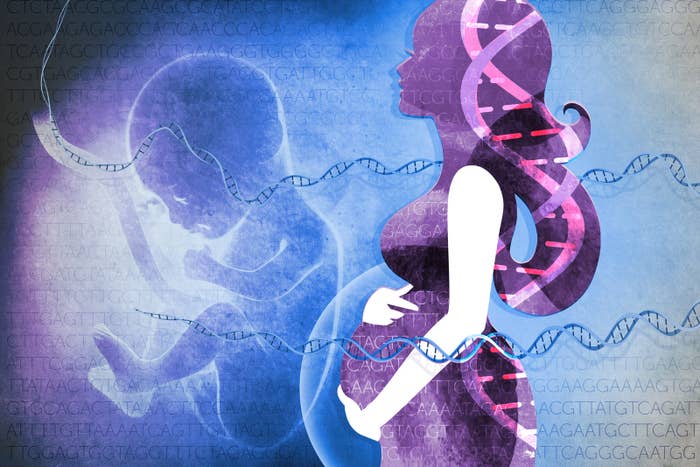
An 11-year-old girl from the Czech Republic was born with genes that came almost entirely from her father, instead of half from each parent.
Only about 25 people in the world — all girls — have been reported with this genetic syndrome, and the Czech girl appears to be the first to have inherited it without developing cancer.
“Ten to fifteen years ago, we didn’t think this condition was compatible for life,” clinical geneticist Jennifer Kalish of the Children’s Hospital of Philadelphia, who was not involved in the new case, told BuzzFeed News.
Kalish heads a lab investigating ways to help children with imprinted gene disorders, conditions in which at least one gene is doubled up from mom or dad. “It doesn’t happen every day,” she said. Russell-Silver syndrome, for example, leads to stunted growth when a child inherits two copies of chromosome 7 from their mother. Although rare, more of these cases are turning up due to improved genetic testing worldwide.
Researchers found the Czech case because the girl’s parents were trying to understand why she was deaf, as reported in April in the Journal of Human Genetics.
When she was 9 years old, a genetic test revealed that she had two identical copies of a rare gene. At first, the scientists thought it was extremely bad luck, inheriting the same super-rare gene twice, once from each parent.
But as it turned out, the rare gene was, “surprisingly, not in her mother,” wrote the scientific team, led by Irena Borgulová of the Centre for Medical Genetics and Reproductive Medicine Gennet in Prague. Which meant she had inherited two copies of her father's gene.
Subsequent testing showed that it wasn’t just that one gene — she had doubled up on her father’s genes in almost all of her chromosomes in most of her cells.
The girl is not quite a twin of her father, but what’s known as a genetic “mosaic,” showing variation in different tissues. Only about 7% of her blood cells, for example, showed any maternal genes. And 74% of the cells in her saliva held only paternal genes.
Now 11, the girl does bear a telltale sign of the syndrome: one leg longer and thicker than the other, according to the study. The bigger leg just got more of the dad-dad genes.

How did this happen? The classic biology class story of a sperm fertilizing an egg in a musical crescendo that has them first unzipping their genes and then swapping them together to create a “zygote” is a much messier process in reality. In the girl’s case, instead of the DNA from her father’s sperm and mother’s egg pairing up this way, two copies of the father’s genes zipped together to create a dad-dad set of 23 chromosomes, the full human genome.
For this to happen in small stretches of genes is rare, about 1 in 10,000 births. It’s rarer still for it to happen across the entire genome, as it did in this girl’s case. When the zygote split to create more cells, most ended up with the dad-dad genome.
For the 25 other cases, this doubling resulted in cancer, perhaps because their paternal DNA included double helpings of cancer-prone genes. So far the 11-year-old has avoided that fate.
Her deafness, though, may have been caused by her plethora of dad-dad genes, though not the gene that the doctors had initially suspected: Double copies of that gene are found in about 1 in 50 Europeans, with no discernible health effects.
“The cause of the deafness remains unknown,” the study found.

